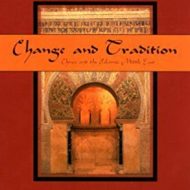The BCR tonight, while running behind schedule, was a really interesting conversation –rather than a lecture– regarding the challenges of being Muslim in current culture. It was evident that the speaker, Ustedh Ubaydullah Evans, was witty, educated, well spoken, and stylish, but what he had to say was equally as captivating as how it was delivered. Evans began with a story that set up a very interesting premise to be considered. One day he was listening to NPR when a host began to address her disdain for the place of gender in the Spanish language. In Spanish, all nouns are masculine or feminine which reinforces the gender binary, and the generic form is masculine singular which reinforces the patriarchy. The host of the radio show saw no positive utility of gender within the language other than when addressing her transgender friends by the pronouns and tenses they prefer. This was an interlude to the conversation of choice, and the value of choice in religion. We spoke about how having the right to choose is much more important than what you do choose, and there are clear benefits from the will of choice, especially across cultures.
We have spoken in class about how Islam translates to “submission” referring to submission to the divine, but there is story that Muhammad most treasured being called a servant of God. This difference led us to addressing the tension that exists in submitting one’s self to God. Relating back to choice, we came to the conclusion, collectively, that those who feel they have no choice or are not afforded any, feel constricted in their religious identity. The tension and culturally stigma may be insoluble, but recognizing the differences, and the choices present is the foundation. We also spoke about other ideas like sola fide, the difference between being fearful and being afraid, western views of the hijab as a symbol of oppression, sin as a gift preceding repentance. His conversion to Islam in present in his views and much of what we discussed, but his humanity spoke louder.
